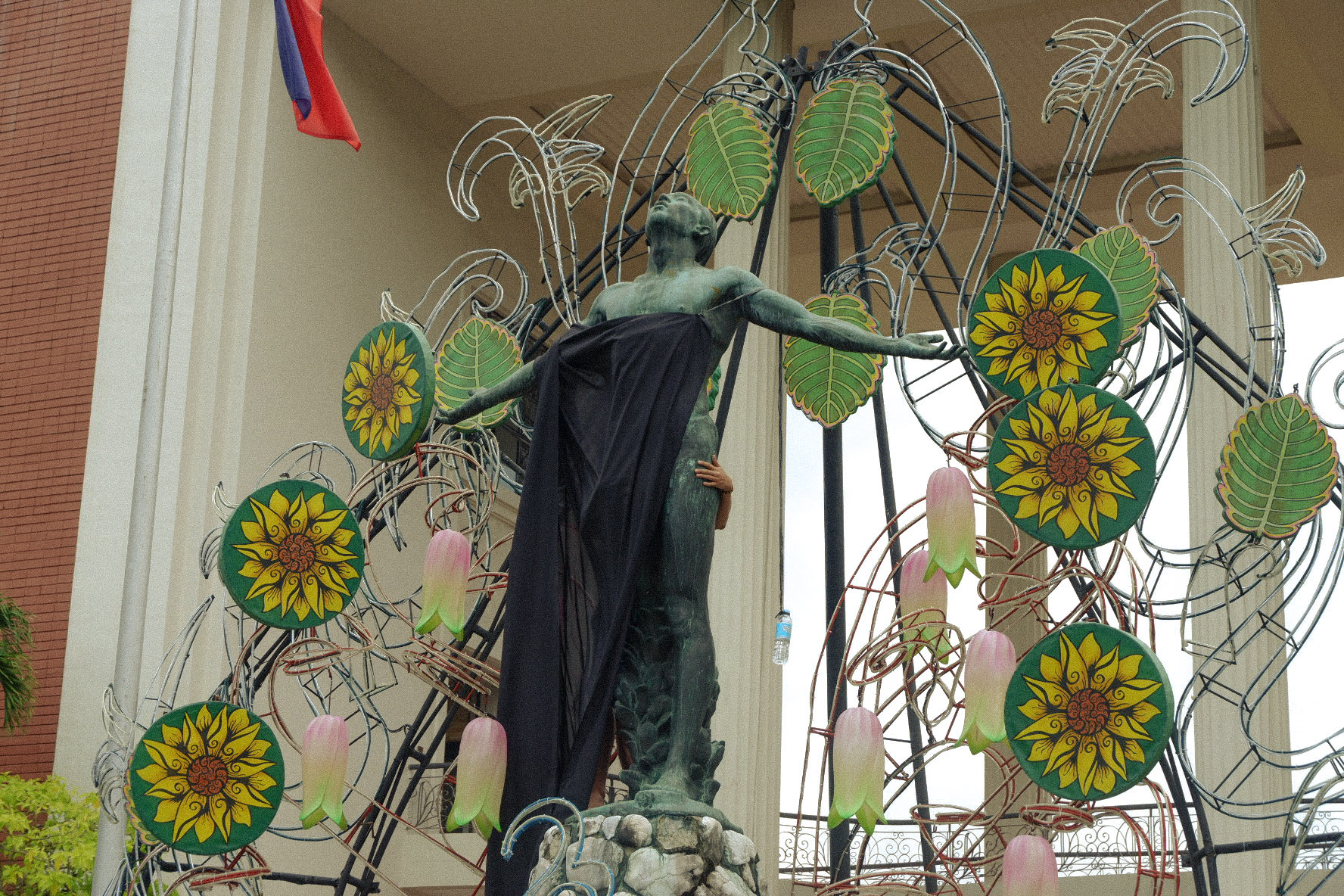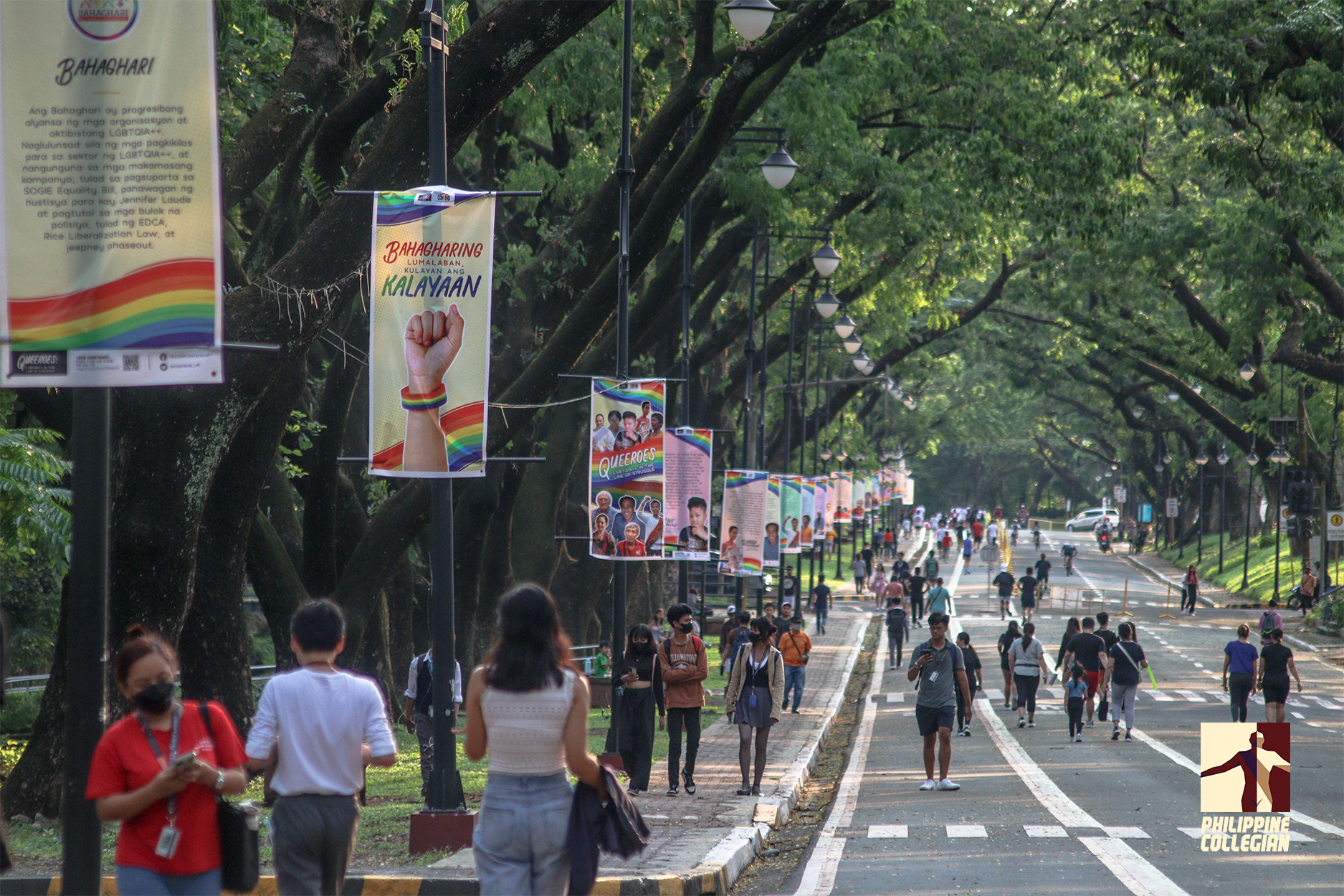Should this proposal be granted, UPMin will see the construction of the College of Human Kinetics (P700 million), College of Science and Mathematics Academic Building (P450 million), College of Humanities and Social Sciences Performing Arts Theater (P200 million), as well as the third phase of the School of Management building (P200 million).
UP is also looking to spend an additional P131 million for campus development, even though the 2024 GAA already allocated P140 million for site developments of campus buildings in UPMin.
Jimenez’s perseverance in developing UPMin is no coincidence, as he has shown keen interest in the campus. He held his investiture in UPMin and even pledged his full support for the endeavors of the campus as a “native son of Mindanao” during the 29th anniversary of UPMin’s founding last February 20.
In line with this, Jimenez announced in a conference on May 7 that new degree programs will be available in UPMin, including a Doctor of Medicine program beginning in the Academic Year 2025–2026. Once launched, UPMin will be the first state university in Davao City to offer such a program.
UP is also eyeing the development of the UP Tacloban’s (UPTac) Sta. Elena Campus, which is set to be the new flagship campus of UPTac. In UP’s 2023 budget proposal, Concepcion asked for a P1.8-billion budget for the campus to kickstart its development.
However, its development was criticized due to fears over commercialization of the campus’s properties.
UP Vista, student publication of UPTac, reported in 2017 that the construction of buildings in the campus has been opposed by students due to its purported prioritization of commercial spaces rather than academic ones. During its inception, the creation of a shopping mall was heavily advertised despite campus laboratory woes.
Nonetheless, the Sta. Elena campus has been seeing steady progress throughout the years. Recently, a groundbreaking ceremony on May 23 was held for the P8-million Mussel Glycogen Production Facility, which will produce glycogen that can be “commercialized and used by large industries,” said Jimenez.
This is also where UPTac Dean Patricia Arinto divulged that there is already a P430-million allotment for the administration, innovation, and research building. House Speaker Martin Romualdez and Tingog Partylist are said to be steering the funding of this primary campus structure.
Now, Jimenez’s P1.4-billion ask for UPTac comprises infrastructure projects that are more student-centered. This includes a four-storey student dormitory (P512 million), four-storey academic building (P491 million), campus security fence (P58 million), and a utilities trench (P20 million).
But if history is any indication, UP’s budget proposal is more of a wishlist than an actual policy agenda. In the last 10 years, UP’s budget proposals have met big blows, with the approved budget averaging only half the proposed fundings (see sidebar 3).
Other Highlights
A standout from the P2.3-billion budget allocated to infrastructures for the UP system, is the P50 million allotted for the construction of relocation facilities for informal settlers. In UP Diliman (UPD), relocation has been a long-standing battle, with people from Pook Arboretum and Pook Marilag struggling to find permanent housing.
But this P50-million allotment seems far from genuine help, as there were no consultations made with the residents regarding price or needs, the Collegian previously reported.
The completion of the College of Music buildings (P123 million) is the only big-ticket construction project in UPD, with the proposed budget focusing more on renovations around the campus. This includes the electrical rewiring in Balay Kalinaw (P17 million), repair of the School of Archaeology Albert Hall’s electrical system (P10 million), and rehabilitation of the Marine Science Institute (P12 million).
New degree programs in UP Los Baños (UPLB) also demand equipment funding requirements: Bachelor of Science in Materials Engineering (P47 million), PhD in Veterinary Medicine (P11 million), and the Bachelor of Science in Accountancy (P3 million).
The creation of these new programs also led to the university’s P25-million ask for personnel services in UPLB, translating to salaries and benefits for the 33 new positions needed for the new programs.
UPLB also houses a few of the biggest infrastructure projects in the proposed budget, such as the third phase of the University Library and Knowledge Center (P250 million), third phase of the Microbial Bank (P245 million), and the second phase of the Office of the University Registrar/Communal Classroom Building (P205 million).
Congress will consider Marcos’s NEP by August, with the aim of passing the budget bill before the year ends. Congressional leaders invite agency heads, including the UP president, to defend their budget. ●






